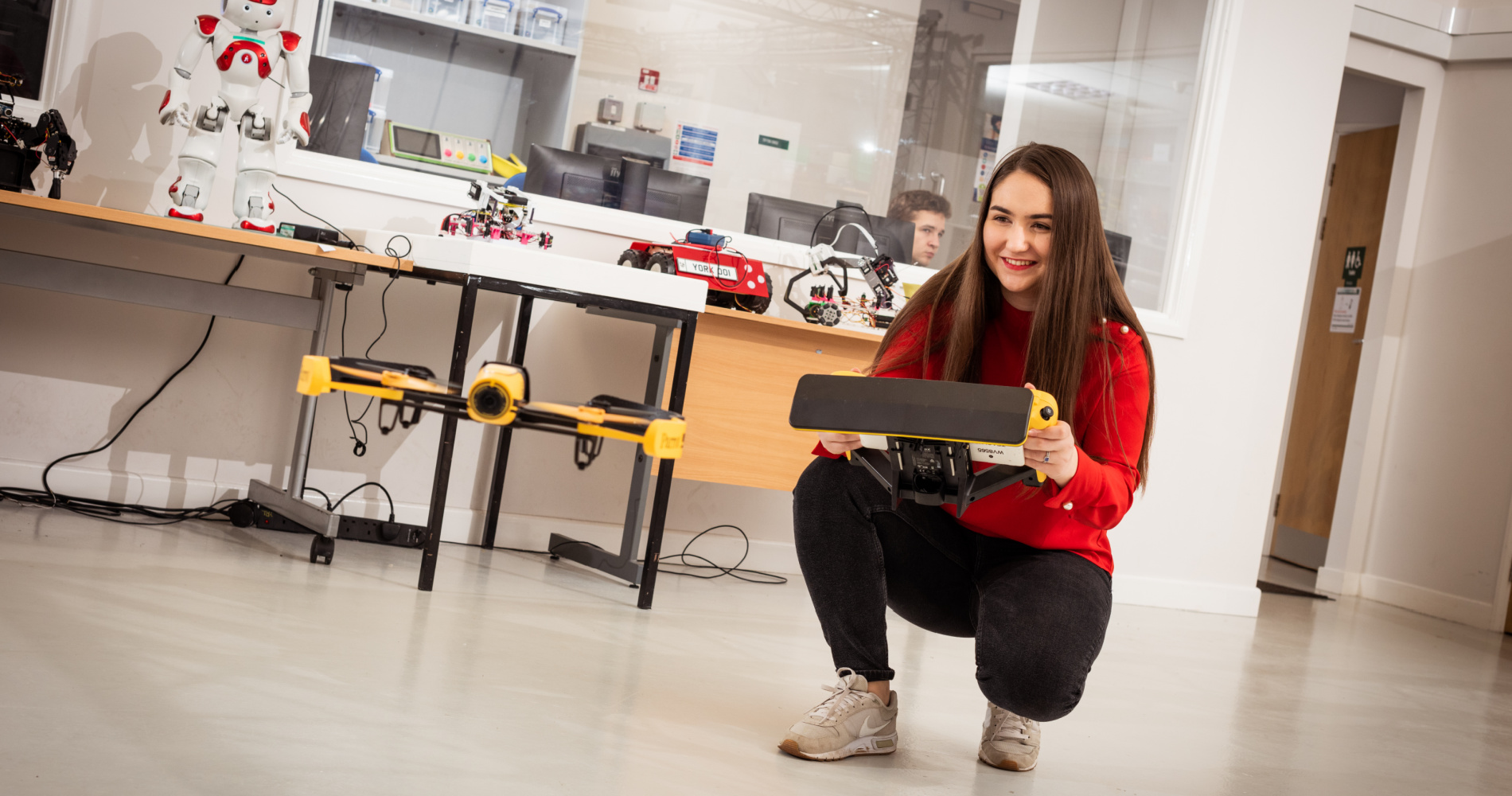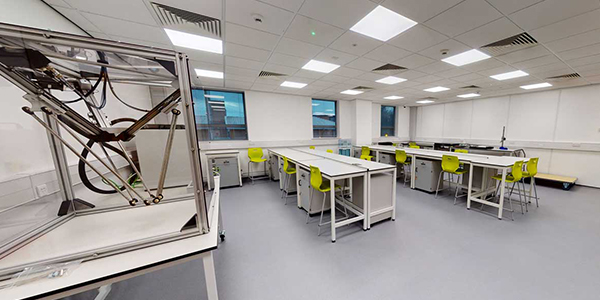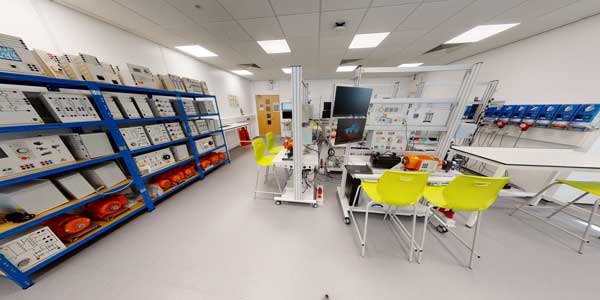Engineering underpins everything we do and everything we use. Our constantly changing world presents new engineering challenges on a daily basis. Develop your knowledge of electronic, electrical, mechanical and mechatronic principles as you learn how to design and create innovative solutions.

Undergraduate degrees in engineering
Why study engineering at York?
At York, we offer a wide choice of undergraduate courses with a huge range of application areas. Our focus is on providing you with the technical and professional skills you'll need when you enter the workplace. Many of our teaching staff are active researchers, and we collaborate closely with our industrial partners to ensure everything we teach is current and relevant.
We build employability into every aspect of our courses. Alongside specialist knowledge, you'll gain a range of transferable skills that will allow you to take on a career in a number of sectors and thrive in management roles.
Our courses
Biomedical Engineering courses
Electronic Engineering courses
Electronic and Computer Engineering courses
Electronic and Electrical Engineering courses
Electronic Engineering with Music Technology Systems courses
Music Technology Systems courses
Engineering courses
Engineering with Renewable Energy courses
Medical Engineering courses
Micro-mechanical Engineering courses
Robotic Engineering courses
Or search all undergraduate courses
Course options
Most of our courses allow you to choose between a three-year Bachelor of Engineering (BEng) or a four-year Masters of Engineering (MEng). The MEng course gives you the opportunity to gain a Masters level qualification and challenges you to study your subject to a deeper level.
All of our courses are available with a year in industry, which gives you the opportunity to gain vital experience in the workplace and find out more about your career options. You can also spend a year abroad as part of your degree.
Our Electronic Engineering with a Foundation Year (BEng) and Music Technology Systems with a Foundation Year (BEng) courses offer a route into engineering if you have potential but you're missing required qualifications.
Visiting students
If you're studying at a university outside the UK, you may be able to spend up to a year in York as a visiting student.
Scholarships and funding
Find out about scholarships and studentships that are available to students in the School of Physics, Engineering and Technology.
Engineering facilities
We have a range of specialised teaching spaces, laboratories and workshops, including our nanotechnology centre, recording studios, VR suite, computing laboratories, clean room, anechoic chamber; a purpose-built laboratory which facilitates experiments with various robots; and specialist engineering teaching labs.


This lab contains a number of workstations for investigating electrical properties.
Careers
- Our supportive academics and close ties with industrial partners will provide you with the technical and professional skills you need in the workplace.
- The skills you'll develop will open up a range of diverse career opportunities. Previous graduates have gone on to work at Arm, RAE Systems, Vodafone, BBC R&D, Dyson and many more.
- We work hard to ensure people from all backgrounds have the opportunity to study and succeed in engineering.

Find your career advantage: Turn ambition into achievement with our expert guidance and connections. From your first day here to life after graduation, we’ll help you succeed.
Student and graduate stories
Hear what our students and graduates have to say about studying with us.

Most facilities (except specialised labs) have 24-hour student card access! I have taken advantage of that in the past, especially before exams and deadlines.

There’s a well equipped nanotechnology laboratory and some fantastic teaching laboratories, with brand new soldering irons, power supplies, oscilloscopes, and signal generators. There is so much to further your knowledge regarding Electronic Engineering, and allow you to have a great time.
Free online courses
Re-imagine what you think engineering is, by exploring real-world applications of engineering and seeing the skill sets and knowledge components needed.
Explore what higher education is all about and learn tips for making the most of your university life and study.
